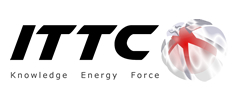Altico default sends funds that are mutual banking institutions scurrying for address
Top Indian loan providers including HDFC Bank, State Bank of India Yes Bank and UAE-based Mashreq Bank had supplied a six-year, Rs loan that is 340-crore Altico.
MUMBAI: Banking institutions and shared funds scrambled on Thursday to contain the fallout for the standard by Altico Capital, with investor attention looking at finance that is non-banking’ liquidity dilemmas in the eve of this very very first anniversary of IL&FS’ bankruptcy.
On Friday, reviews agency Asia reviews & Research cut Altico’s creditworthiness to ‘D’, or ‘default’ category, from A+ earlier. Care, another ranks agency, downgraded the finance company’s debt to below investment grade.
Meanwhile, shared funds such as for instance UTI and Reliance Nippon AMC hurried to ring fence the worth of the financial obligation schemes by segregating, or ‘sidepocketing’, Altico’s securities.
“The modification takes under consideration Altico’s significant experience of real-estate sector which can be witnessing a slowdown and experiencing heightened refinancing risk which will be reflected to a degree with moderation in asset quality for the company, ” Care stated in a declaration.
Shares of banking institutions and non-banking boat loan companies (NBFCs) finished blended on Friday as some investors fretted about a potential perform of last year’s scare and subsequent market meltdown due to the standard and ultimate bankruptcy of IL&FS.
The standard within the last few week of September 2018 had triggered an industry crisis and brief credit shutdown to over-leveraged finance firms and their customers.
Many NBFCs are yet to recoup through the 2018 crisis, and investors continue to be stressed concerning the bad liquidity condition of numerous little players. On Friday, shared funds had been quick to benefit payday loans in Oregon from ‘sidepocketing’ rules released because of the Sebi following the IL&FS crisis, which enable funds to segregate illiquid securities from defaulting companies till the fund homes have the ability to realise some value from these documents. The procedure produces two schemes — one that provides the illiquid paper and one other keeping the nice people. As so when investment homes have the ability to recover funds from Altico Capital, it’ll be distributed to investors equal in porportion for their holdings when you look at the portfolio that is segregated.
UTI Credit danger Fund, with assets of Rs 3,536 crore, posseses a visibility of Rs 202.82 crore to Altico documents (5.85percent of assets under administration). Reliance Ultra Short Duration Fund, with assets of Rs 3,258 crore, posseses a visibility of Rs 150 crore (4.61% of assets under management).
In an email, UTI Mutual Fund stated current investors will be allotted exactly the same quantity of devices when you look at the segregated profile associated with scheme such as the portfolio that is main. “No membership and redemption is going to be permitted into the segregated profile. The AMC will disclose NAV that is separate of profile and enable transfer of these devices on receipt of transfer demands, ” it said. Reliance Nippon AMC stated it’s going to suspend all subscriptions within the affected investment from September 13 till further notice. The investment home stated it had informed investors concerning the segregated profile in the scheme and provided them time till September 24 to redeem devices. The AMC stated it’s going to produce a portfolio that is segregated September 25.
Top Indian loan providers including HDFC Bank, State Bank of India Yes Bank and UAE-based Mashreq Bank had supplied a six-year, Rs 340-crore loan to Altico. On Thursday, the finance business neglected to spend Rs 20 crore which was due as interest. The NBFC’s total debt amounts to about Rs 4,000 crore.
Mashreq Bank gets the exposure that is highest to Altico with Rs 660 crore of outstanding term loans, including outside commercial borrowings. Among Indian loan providers, HDFC Bank gets the exposure that is maximum Rs 500 crore, followed closely by Yes Bank at Rs 450 crore and SBI at Rs 400 crore, relating to a written report by Asia reviews.
